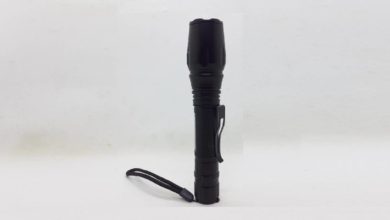Can I Travel With Pepper Spray?
KEY TAKEAWAYS
Greetings, adventurers, and explorers worldwide! If you’ve ever pondered, “Can I travel with pepper spray for personal safety?” know that you are part of a sizable group. A recent survey suggests that nearly 65% of travelers have inquired about the legalities and logistics of carrying personal defense items like pepper spray while on the move. This inquiry, therefore, isn’t an anomaly but an increasing concern in our globally-connected society.
Understanding the Concept of Traveling with Pepper Spray
Pepper spray is a popular self-defense tool globally. However, due to its nature and potential risks, there are strict rules and regulations concerning its transportation, especially regarding air travel.
The Legality of Pepper Spray
Pepper spray laws vary greatly worldwide and even within different states or regions of the same country.
International Law on Pepper Spray
From an international perspective, there’s no uniform law that regulates the use and transportation of pepper spray. It’s often up to individual nations to decide.
U.S. Laws on Pepper Spray
In the U.S., for example, laws differ from state to state. Some states have restrictions on the size or strength of the spray, while others may require a permit.
EU Laws on Pepper Spray
In contrast, the European Union has a more uniform approach. Many EU countries treat pepper spray as a controlled weapon, making it illegal to carry without a specific permit.
Risks and Precautions of Traveling with Pepper Spray
When it comes to air travel, one must tread carefully. The Transportation Security Administration (TSA) in the United States does allow passengers to carry a small, personal-use pepper spray in their checked baggage, but it’s not as simple as just tossing it in your suitcase. There are several conditions you must meet.
Firstly, the pepper spray canister must not exceed 4 fl. oz. (118 ml) and should have a safety mechanism to prevent accidental discharge. Secondly, the canister must be packed in such a way that it’s protected from damage. Even if you meet these conditions, it’s important to declare the item at the check-in counter to avoid any issues.
Furthermore, carrying pepper spray in your carry-on bags or on your person is strictly prohibited. This extends to the security screening areas at airports. If you’re found with a canister in these areas, it will be confiscated, and you could face penalties.
In short, while it’s possible to travel with pepper spray on a flight, the rules are strict, and the potential risks are high. Violating these rules can lead to hefty fines, and in some cases, legal action. Therefore, it’s important to understand and comply with these regulations to avoid such complications.
Moreover, these are the TSA regulations applicable to flights originating in or landing in the U.S. Other countries might have different rules, which could be even stricter. Always check with the relevant authorities before planning to travel with pepper spray.
Tips for Safe Handling of Pepper Spray
If you’re traveling with pepper spray, always check the local laws, handle it responsibly, and pack it appropriately if you’re flying. Remember, the goal is personal safety, not causing unnecessary harm or violating local regulations.
Alternatives to Pepper Spray for Personal Safety
If you find the pepper spray regulations too complex or restrictive, consider alternatives that can still provide a sense of safety. In places where carrying pepper spray is restricted or if you are uncomfortable with the associated risks, there are alternatives you can consider.
Stun Guns
Stun guns are an efficient non-lethal self-defense tool that work by delivering a high-voltage shock to the attacker, temporarily disabling them. This gives you enough time to escape and call for help.
Stun guns come in a variety of shapes and sizes, from models that look like traditional guns to those disguised as everyday items like flashlights or lipstick tubes. This flexibility makes them a popular choice for self-defense.
However, much like pepper spray, their legal status varies worldwide. Some countries or regions strictly regulate their use, and they may be entirely banned in others. Always make sure to research the laws in your destination before deciding to carry a stun gun.
Personal Alarms
Personal alarms are another excellent tool for personal safety. They are small devices that emit a loud siren when triggered. The noise can disorient an attacker and draw attention to your situation, possibly deterring the attack and attracting help.
The major advantage of personal alarms is their universal legality. There are no laws against carrying or using personal alarms anywhere worldwide. They are also typically small and easy to carry, often designed to attach to a keychain or fit into a pocket.
Self-Defense Keychains
Self-defense keychains are another compact and portable option for personal safety. These tools come in various forms to suit different preferences and situations. Some are designed with sharp points or edges for physical defense, while others might incorporate loud noise makers or bright lights to disorient an attacker.
Much like personal alarms, self-defense keychains are generally legal to carry. However, certain designs classified as concealed weapons may be restricted in some areas. As always, it’s essential to familiarize yourself with local laws before carrying any self-defense tool.
FAQs
1. Is pepper spray allowed on an airplane?
The Transportation Security Administration (TSA) allows passengers to carry a small, personal-use pepper spray in their checked baggage under certain conditions, but it’s not permitted in carry-on bags.
2. Is pepper spray legal in all U.S. states?
While pepper spray is legal in all 50 U.S. states for self-defense purposes, some states impose restrictions on the size or strength of the spray, and a few may require a permit.
3. Can I carry pepper spray in EU countries?
Many EU countries categorize pepper spray as a controlled weapon. Thus, it may be illegal to carry without a specific permit. Always check local laws before traveling.
4. What can I use as an alternative to pepper spray?
Alternatives to pepper spray include stun guns, personal alarms, and self-defense keychains. The legality and effectiveness of these alternatives can vary.
5. Can pepper spray expire?
Yes, pepper spray does have an expiration date, usually marked on the canister. After this date, the spray might not perform as expected.
Remember, the best defense is being informed and prepared. Know your tools, understand the laws, and always prioritize safety over convenience.
Conclusion
In conclusion, the feasibility of traveling with pepper spray hinges upon specific location laws and travel regulations. Knowing the legalities and understanding alternative personal safety options is paramount. Ensure you’re informed, compliant, and prepared to secure your safety during your travels.
Learn more about enhancing your home’s safety for your family and loved ones by reading through our blogs at Security Forward today.




